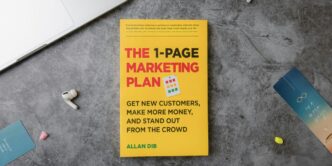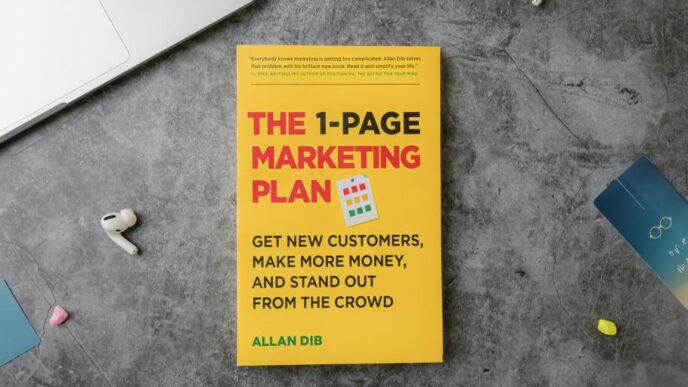In today’s highly competitive business world, marketing has become more data-driven than ever. Companies invest significant resources in their marketing strategies, and it’s crucial to know if those efforts are paying off. Assessing a marketing agency’s performance requires more than reviewing reports it involves analyzing key metrics for a clearer understanding of impact. Advances in technology, such as AI and automation, have revolutionized how businesses measure their agency’s success. These tools provide a level of accuracy, efficiency, and insight that allows businesses to make smarter, data-driven decisions.
The Rise of AI and Automation in Marketing Evaluation
Before AI and automation, evaluating a marketing agency’s performance was a tedious, manual process often based on educated guesses. Marketers would rely on basic metrics like website traffic, leads, and sales figures. While these numbers gave a general idea of campaign performance, they didn’t offer the depth needed to truly evaluate success.
AI and automation have changed that. Today, businesses can track a wide array of metrics more accurately and analyze them in real time. AI’s ability to process large amounts of data instantly provides companies with immediate feedback on their campaigns, while automation simplifies data collection and reporting, reducing the need for manual work.
Why Metrics Matter in Evaluating Marketing Success
Data-driven insights are key to determining whether a marketing agency is performing well. Metrics provide solid evidence of what’s working and what needs adjustment, allowing companies to make better decisions for future strategies.
Here are some important metrics AI and automation tools can help you evaluate:
Return on Investment (ROI): At the heart of any marketing evaluation is ROI. AI tools can analyze data from different sources, helping businesses calculate exactly how much return they’re getting from their marketing spend.
Customer Engagement: Automation tracks interactions across platforms like social media, emails, and websites, helping companies see how well their content connects with the target audience.
Lead Generation and Nurturing: AI can assess the success of lead generation by tracking where leads are coming from, how they’re nurtured, and whether they convert into paying customers.
Customer Retention: AI analyzes customer behavior patterns, offering insights into how well the agency retains customers.
Sales Attribution: Automation helps businesses attribute sales to specific marketing efforts, which is vital for knowing which campaigns are driving revenue.
How AI Tools Deepen Marketing Evaluation
AI offers several unique advantages for evaluating marketing performance:
Predictive Analytics: AI doesn’t just look at past performance it can predict future trends, helping businesses assess whether their marketing agency is reaching the right audience and staying ahead of trends.
Natural Language Processing (NLP): AI can analyze customer feedback and social media comments to measure how people feel about a brand, giving insight into whether the agency’s messaging is working.
Performance Benchmarking: AI tools compare a company’s marketing performance to industry standards and competitors, showing whether the agency is meeting or exceeding expectations.
Real-Time Reporting: AI tools provide live updates, enabling businesses to adjust campaigns quickly based on current data.
Customizable Dashboards: AI-powered dashboards let businesses focus on the metrics that matter most, ensuring they see only the data directly tied to their goals.
The Role of Automation in Streamlining the Evaluation Process
While AI provides deep insights, automation makes the evaluation process faster and easier by handling repetitive tasks:
Automated Data Collection: Automation gathers data from multiple sources like Google Analytics, social media, and email platforms, ensuring accurate data without manual input.
Performance Tracking and Alerts: Businesses can set performance thresholds, and automation will send alerts if certain KPIs dip, allowing for quick action.
Campaign Management: Automation tools adjust campaigns in real-time, such as changing ad spend based on performance, to maximize results.
Efficient Reporting: Automated reports offer instant insights, allowing companies to evaluate marketing performance without waiting for monthly reviews.
A/B Testing at Scale: Automation allows multiple A/B tests to run at once, with AI analyzing the results to determine the best approach.
Choosing the Right AI and Automation Tools
With so many AI and automation tools available, it’s important to choose one that fits your needs. Consider these factors:
Integration Capabilities: Make sure the tool integrates smoothly with your existing systems like CRM, social media, and analytics platforms.
User-Friendly Interface: The tool should be easy to navigate, whether you’re tech-savvy or not.
Customization: Look for tools with customizable dashboards and reports, so you can focus on the metrics that matter most.
Scalability: Choose tools that can grow with your business and handle more complex data as your marketing efforts expand.
Customer Support: Opt for a tool that offers reliable customer support to resolve any issues quickly.
Conclusion
In today’s data-driven world, businesses need to leverage AI and automation to get the most out of their marketing agency evaluations. These tools offer unprecedented insight, helping companies make better decisions, improve ROI, and maximize the impact of their marketing efforts. The future of marketing is all about technology. Businesses that use AI and automation will get ahead, setting themselves up for long-term success with smarter strategies.













